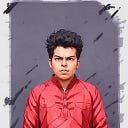Exploring Nobel Prize Winner Han Kang’s Work: Which Book Should You Start With?
In 2024, Han Kang was awarded the Nobel Prize in Literature, recognising her profound contributions to world literature. Known for her poignant explorations of trauma, identity, and the human condition, Han Kang’s work has captivated readers across the globe. Her writing delves deep into the complexities of societal pressures, the body, and the intersections of personal and collective memory. Whether addressing the quiet rebellion of an individual or the violent echoes of historical events, her stories challenge and inspire in equal measure.
With a remarkable body of work, including The Vegetarian, Human Acts, and The White Book, Han Kang’s novels have earned critical acclaim for their emotional depth and literary innovation. If you’re new to this Nobel laureate’s works, here’s a guide to help you choose the best starting point based on your interests
1. The Vegetarian (2007)
- Themes: Alienation, rebellion, trauma, societal expectations
- Plot Overview: The Vegetarian is a disturbing and surreal exploration of a woman’s decision to stop eating meat. The novel is divided into three parts, each told from a different perspective, detailing the protagonist’s psychological transformation and her struggle to assert control over her body in a repressive society.
- Why Read It: This novel is Han Kang’s most well-known work, and it explores themes of personal autonomy, gender politics, and the body’s rebellion in a society that seeks to control it. If you’re looking for a starting point that gives you a sense of her stylistic and thematic intensity, The Vegetarian is the place to begin.
- Start Here If: You prefer thought-provoking, experimental narratives that challenge societal norms and explore deep psychological changes. This book is short but emotionally powerful.
2. Human Acts (2014)
- Themes: Historical trauma, memory, violence, resistance
- Plot Overview: Human Acts is set against the backdrop of the 1980 Gwangju Uprising, a massacre in South Korea, and examines the lives of individuals affected by the event. The narrative moves between different perspectives, capturing the long-lasting scars of violence and the ripple effects of historical trauma on both the collective and the individual.
- Why Read It: If you are interested in novels that tackle historical events and explore the human cost of political violence, Human Acts provides a haunting and emotionally resonant portrayal of trauma. It’s more grounded in real-world events compared to The Vegetarian, and focuses deeply on human suffering and collective memory.
- Start Here If: You want to explore the political and historical aspects of Han Kang’s writing. This book gives a more humanistic, collective view of trauma and history, with a stronger historical foundation.
3. The White Book (2016)
- Themes: Grief, memory, identity, life and death
- Plot Overview: The White Book is a poetic and fragmented meditation on grief, loss, and the color white. The narrator reflects on the death of her infant sister, weaving in memories, abstract thoughts, and reflections on life and death. It’s part memoir, part fiction, and part meditation.
- Why Read It: This is a more introspective and philosophical book. If you enjoy fragmented, poetic works that blur the lines between fiction, memoir, and philosophy, The White Book is an incredibly moving exploration of life and death, told through deeply lyrical prose.
- Start Here If: You prefer more abstract, poetic narratives that are quiet but emotionally rich. It’s a good choice for readers who enjoy literature that feels almost like a long, reflective poem.
Which Book to Start With?
If you’re new to Han Kang’s work, I recommend starting with The Vegetarian. It is her most acclaimed novel and offers a perfect introduction to her style of exploring complex psychological and societal issues. The book is relatively short, so you can get a feel for her narrative approach without a heavy commitment, but it’s intense enough to leave a lasting impact. Althpough its a bit heavy but worth it.
If you prefer historical context and political commentary, then Human Acts might be a better starting point, as it introduces you to Han Kang’s engagement with Korea’s history and collective trauma. The White Book, while beautiful, is more abstract and would be ideal after you have some familiarity with her voice and themes.
Each novel presents a different facet of Han Kang’s brilliance, so your choice can also depend on your literary preferences!
